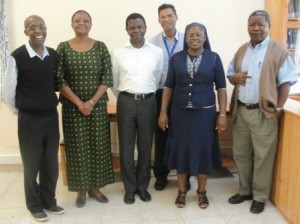 In Africa, in the wake of HIV/AIDS, much of youth training focused on life-skills. With the number of new infections stabilising and the frequency of HIV prevention training reduced, life skills feature less in the discourse of youth formation today. On the other hand, globally, youth trainings increasingly focus on character development (CD). In Africa, however, character strengths remain largely unexplored. Character Strengths (CS) are virtue-like habits and attitudes that influence individuals’ behaviour in such a way that their wellbeing and that of the society are enhanced. Psychologists Seligman and Peterson have suggested a list of 24 CS that are said to be ubiquitous across cultures and religious traditions.
In Africa, in the wake of HIV/AIDS, much of youth training focused on life-skills. With the number of new infections stabilising and the frequency of HIV prevention training reduced, life skills feature less in the discourse of youth formation today. On the other hand, globally, youth trainings increasingly focus on character development (CD). In Africa, however, character strengths remain largely unexplored. Character Strengths (CS) are virtue-like habits and attitudes that influence individuals’ behaviour in such a way that their wellbeing and that of the society are enhanced. Psychologists Seligman and Peterson have suggested a list of 24 CS that are said to be ubiquitous across cultures and religious traditions.
The present study is part of a larger project, “Character Scaffolding – Kenya and Tanzania”, that aims: (1) to develop a theoretical base for exploring character strengths (CS) in the African context, and arrive at an African list of CS; (2) to develop training manuals for CD in English and Swahili; (3) to initiate a series of training of trainers; (4) to oversee the facilitation of CD of selected youth in Kenya & Tanzania through the trainers; (5) to verify the impact of CD on wellbeing through an empirical study.
The larger project, to be implemented by the Institute of Youth Studies, Tangaza University College -Nairobi, is first of its kind in East Africa in scientifically developing and implementing training in Character Development
The proposed study, the first phase of the project, involves an empirical research using a qualitative research design employing the Delphi method of data gathering. Delphi method involves a process of consultation among experts in a series of focus-group discussions around a topic with the same group of experts until a consensus is arrived at. The proposed study intends to bring together five to seven experts in African religions and cultures, in a series of three sessions, with the objective of coming up with a list of CS. This list will form the framework of a training manual that will be developed subsequently as part of the larger project.
Lead Investigator: Sahaya G. Selvam
(Note: The Delphi process has been now completed.)